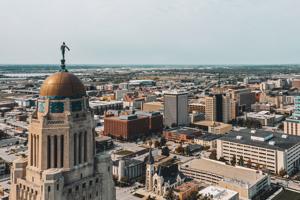Study: Nebraska town among the best run

(The Center Square) – Lincoln, Neb., scored well in a new study by WalletHub that ranks the best and worst run cities in the country.
The state capital and home to the University of Nebraska came in at No. 6. Two cities in Idaho, Nampa and Boise, took the first and second spots, respectively, while the rest of the top five are Fort Wayne, Ind., Nashua, N.H., and Lexington, Ky.
In determining its rankings, WalletHub looked at 150 of the most populous cities in the country across six categories: financial stability, education, health, safety, economy and infrastructure and pollution.
They then evaluated those areas using 38 metrics to calculate an overall “Quality of City Services” score based on each city’s weighted score across all metrics. The “Quality of City Services” was then divided by each city’s “Total Budget per Capita” to construct a “Score per Dollar Spent” to determine the final rank.
Lincoln ended up No. 8 overall for its “Quality of City Services” ranking and No. 19 for “Total Budget per Capita.”
“This year has been a true test of the effectiveness of local leadership, as city leaders have had to deal with the COVID-19 pandemic, including enforcing restrictions and helping to facilitate the distribution of the vaccine,” said Adam McCann, author of the study. “As new COVID-19 cases continue to drop, these leaders will be responsible for helping the transition back to normalcy go as smoothly as possible.”
One factor that helped Lincoln score so well is its low unemployment rate. The city of 284,000 tied for first in that category along with Provo, Utah, and Salt Lake City, Utah.
Nebraska’s overall unemployment rate of 2.8% is tied for the lowest in the country along with New Hampshire, South Dakota and Utah.
Lincoln also scored well for education, with its high school graduation rate being slightly above 93%.
Among the other metrics WalletHub looked at were a city’s credit rating, infant mortality rate, average life expectancy and median annual household income.
Robert Eyler, associate vice president of government and regional relations at Sonoma State University, told WalletHub there are three issues facing American cities in light of the coronavirus pandemic.
“First, will business and pleasure travelers come back to the cities?” he said. “Second, will local, major employers with portable jobs allow all workers to remain remote enough to change their investments in commercial real estate? And third, what will be the broader impacts on regional transportation, sales and property tax revenues and rental prices if cities are slow to recover?”
Disclaimer: This content is distributed by The Center Square

